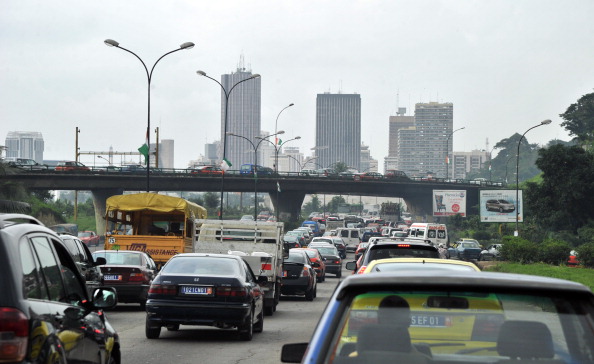Ivory Coast is aiming to issue a new Eurobond of at least one billion dollars at the end of next month.
This is according to the West African nation’s Prime Minister Daniel Kablan Duncan.
“The discussions are under way with our partners to sort out the practicalities,” he told a press conference in the economic capital, Abidjan. “The target is for the end of February so that the money is available in March.”
Less than three years since civil war erupted in Ivory Coast it’s back to business as usual. Growth rates are now among the highest in Africa and the west African nation is set to return to international capital markets as it looks to finance infrastructure projects and pay off debt.
“We are issuing bonds in CFA [francs]… and it is between about $500m and $1bn,” the country’s prime minister Daniel Kablan Duncan said on the sidelines of OECD meetings in Paris, adding that a launch is due by next year.
The CFA-franc is pegged to the euro and analysts expect the 7-year note to be issued in the euro market, allowing Ivory Coast to tap international investors looking for their slice of the African growth story.
A eurobond could follow. “Next year… we can go on the international market to have eurobonds,” Duncan said.
Ivory Coast, once a haven of stability in a rocky region, has experienced 15 years of fairly persistent unrest. Most recently, fighting broke out when former president Laurent Gbagbo refused to cede power to his opposition Alassane Ouattara after November 2010 elections. In the few months that followed, 3,000 people were killed and hundreds of thousands more displaced.
That caused the government to default on $2.3bn of eurobonds in February 2011, but it resumed payments last year. It has since listed debt on the west African bourse, but an entry to euro markets would constitute the first external issue since the civil war began.
In terms of the economy, things are looking up after a decade of flatlining. Ivory Coast received $7.7bn in debt reduction last year after meeting conditions set by the International Monetary Fund-World Bank Heavily Indebted Poor Country (HIPC) scheme, qualifying for the final stage of the programme. At the same time, growth hit 9.8 per cent as investors returned and exports rose. That has eased off a little this year, but the government is targeting double digit expansion for 2014. Inflation is low by regional standards (around 2 per cent), and the budget deficit stands at just 3.4 per cent.
Ivory Coast isn’t alone in turning to capital markets to raise much-needed finance. A number of African governments are continuing with plans to issue international debtdespite rising costs caused by the US Federal Reserve’s plans to begin tapering its quantitative easing programme. In its Global Financial Stability Report, the IMF warned that a reduction in asset purchases could wipe trillions of dollars off bond markets, but Kenya, Zambia and Senegal could all still issue eurobonds in the coming months.
It’s pricey out there, but there may be time
FRENCH VERSION



